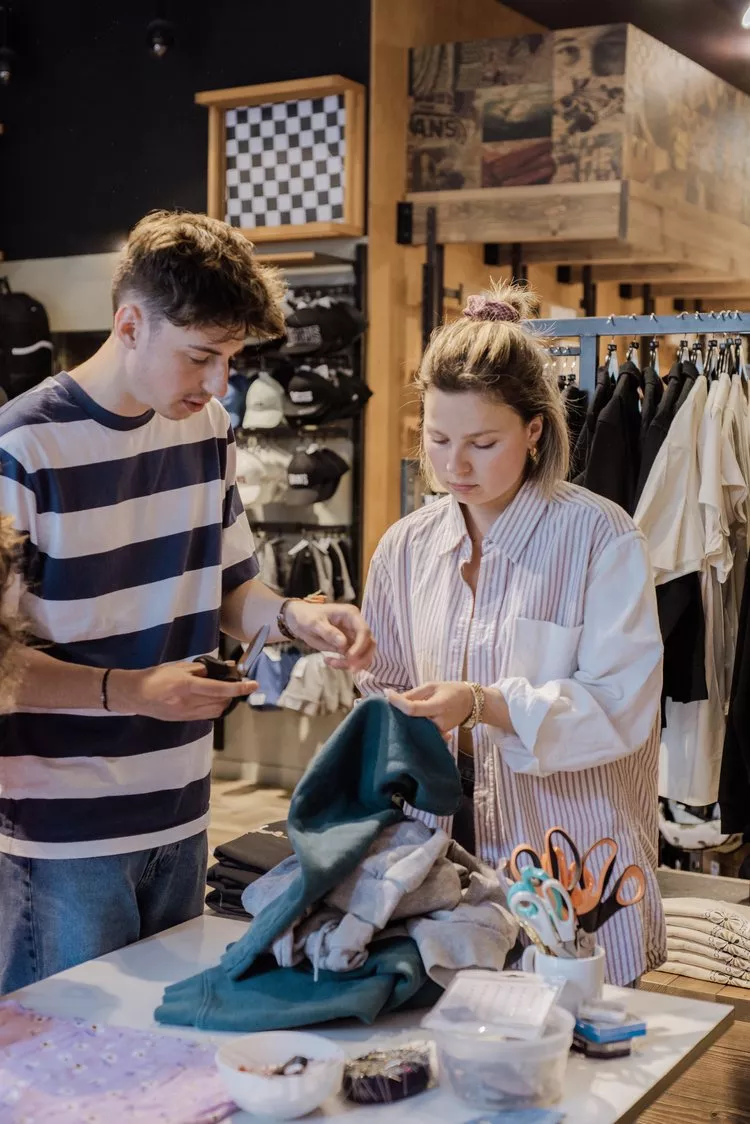Place du Nouveau Marché aux Grains 10
Nieuwe Graanmarkt 10
1000 Brussels
Nieuwe Graanmarkt 10
1000 Brussels
contact@mad.brussels
+32 2 880 85 62
+32 2 880 85 62

"There are already plenty of ways to keep up with fashion without further polluting the planet."
Juliet Bonhomme
Juliet Bonhomme, upcycling and slow fashion influencer and founder of The Upcycling Lab, a that offers upcycling workshops and advice, aiming to recycle forgotten, damaged or unsold textiles to give them a new life in our wardrobes.She develops workshops to reconnect the people of Brussels to their know-how and creativity. She also collaborates as a consultant with fashion brands on upcycled collections based on their unsold products.
MAD Brussels had a talk with Juliet Bonhomme.